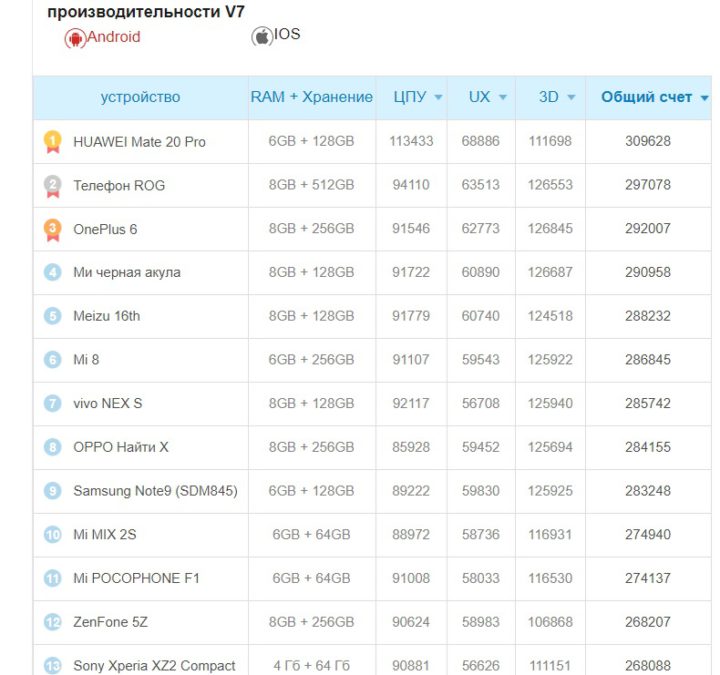Some results of the competition for the creation of artificial intelligence in our smartphones. Or 'I don't want to pay for it.'

Artificial intelligence in smartphones leads to losses in pockets
At the end of the year, any abrupt changes in the value of the companies' shares generate burning interest. For the reason that these changes are objective. If at the beginning of the year companies producing components for our smartphones can still talk about the expected explosive demand for new technologies (for example, for 'artificial intelligence' or chips for cars), then towards the end of the year all this husk flies off. It flies off like the last leaves from a birch tree in the fall, and before the eyes of analysts appear crooked naked plexuses of skinny bodies, wretched and miserable.

This fall, the analysts of the American bank holding Morgan Stanley were the first to fire from the anti-investment gun, and the head of the group Charlie Chan (詹家鴻) pressed the button. The main weakness of the hardest hit companies, according to Charlie, is that they participate in the creation chain Apple iPhone. Sounds strange, doesn't it? We are used to the idea that the company Apple thrives on its own and makes its partners successful. Alas, in 2018 the situation changed dramatically, and there is only one reason for this – the company Apple did not show new attractive technologies in 2018 in its products. This led to a sharp decline in orders for the component base in Asian industries, and then events developed quite logically. If 40% of TSMC's revenues depend on the production of components for smartphones, and their largest customer Apple Inc does not place new orders, then the fair price for TSMC shares should be $ 239, not $ 253, Chan decided. However, we have been convinced for several years that the success of the company Apple Inc does not depend on such a trifle as the success of its products.
But it's not just about Apple, it's a general trend. Over the past year, none of the big companies have been able to show the presence of artificial intelligence in new smartphones to the extent that it becomes a new competitive advantage. No matter how much you paint the box with a new smartphone with pictures of the brain, no matter how much you paint with the letters 'AI', the stubborn buyer is not interested in this and does not bear his money. Among the victims was a company MediaTek, which is already experiencing difficulties in overproduction with low demand, which led to a target forecast of $ 205 versus $ 290 per share. Let me remind you that in its latest chipsets for smartphones of the 'A' and 'P' series, the company MediaTek focused specifically on the functions of intelligent photography, post-processing and other things that most users do not need. The result is logical – wasted man-hours and neural network calculations.
Meanwhile, Samsung is feeling quite confident. Perhaps this is due to the fact that the phrase 'artificial intelligence' appears on their website in the paradigm of improving existing technologies? For a smartphone user, the phrase “intelligent performance management” is quite understandable, which is nothing more than an adequate setting for changing the frequency of the chipset cores, or the description of the camera in the Galaxy Note 9, which can be reduced to a simple phrase: “Boy! If I don’t like the picture you and I took, I’ll take another one right away. ” A potential buyer is not fed exclusive scenarios for using a smartphone camera, or convinced of the need to photograph a lamp post and flies hovering around it (I hope those to whom this is addressed will take this as fair criticism). Either way, Samsung has a golden safety net in the form of random-access memory (DRAM) production that will keep them afloat no matter what the smartphone market fails.
In the bowels of ARM
Against the background of the above, it would be quite logical to turn to the primary source and see what the alma mater of all licenses in our smartphones is doing. Let me remind you that from 2016 to the present, ARM Holdings Plc belongs to the Japanese SoftBank Group Corp. And also the fact that both companies in the acquisition process signed a legal obligation to expand the staff of ARM developers twice within 5 years (from the current 2504 people to 3500 in the next year or two). What exactly the company is doing and in which direction their gaze is directed can be judged by their purchases this year. Among them are Treasure Data and Stream Technologies. The first of the companies has always been engaged in the creation of data processing algorithms, and the second – in the development of data transmission technologies, including stream compression standards and the development of hardware for this.
Obviously, ARM aims to knock out manufacturers of equipment for telecommunications networks (including classic servers and IoT components) from the market and replace them with ARM platforms. When collecting information, it became obvious that ARM does not hang posters with 'artificial intelligence' in front of investors' eyes, and this idea itself is nothing more than an unauthorized initiative of licensees such as MediaTek, Apple, Huawei, Amazon and others.
Conclusions and questions
Over the past year, companies have spent too much money creating a homunculus inside a smartphone, but they have not been able to create one. As before, 'smart functions' in a smartphone are responsible for everyday actions, such as voice input of information, correct distribution of the computing load based on the capabilities of the hardware, translations of texts from foreign languages, advanced search based on an image or sound. Those. for everything that existed before and always depended only on the bare performance of the chipset and the speed of information transfer between the server and the personal terminal. Simple benchmarks like AnTuTu Benchmark confirm this. The first places are occupied by smartphones, which are leaders in naked mathematical performance (CPU) and the sum of points after tests for 'user experience' (UX), while the performance of 'artificial intelligence' simply does not exist in nature. And if we cannot measure the 'artificial intelligence' we have created, then how can we prove its existence? No way.

Friends, tell us what functions in a modern smartphone can you refer to the sphere of activity of 'artificial intelligence'? Do you use them all the time or do you think they are pampering? And most importantly, are you willing to pay for it?
